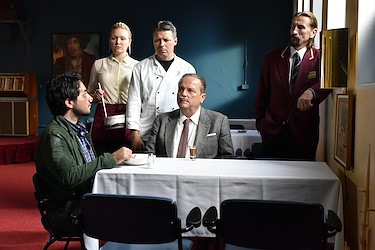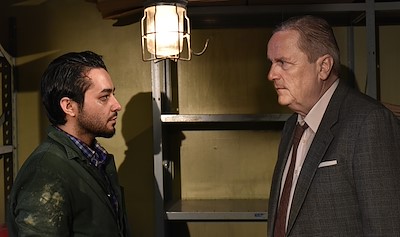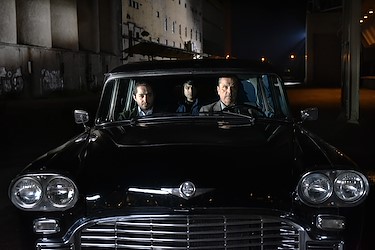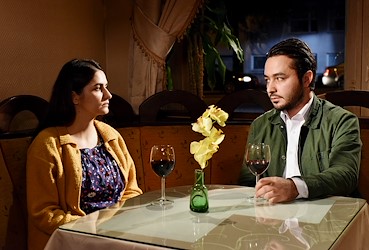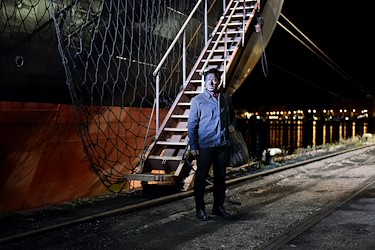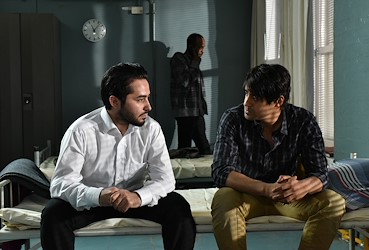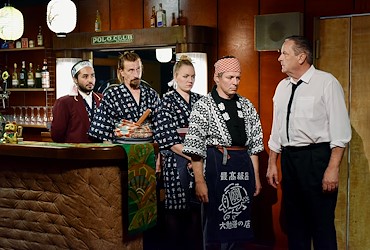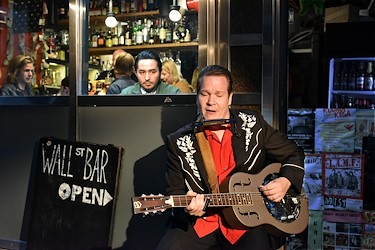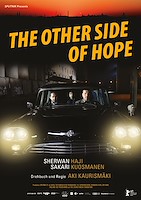The Other Side of Hope
Aki Kaurismäki, Finland, 2017o
Syrian refugee Khaled stows away on a freighter to Helsinki. Meanwhile, Wikström is a travelling salesman who wins big at a poker table and buys himself a restaurant with the proceeds. When the authorities turn down his application for asylum, Khaled is forced underground and Wikström finds him sleeping in the yard behind his restaurant. He offers him a job and a roof over his head and, for a while, they form a Utopian union with the restaurant’s waitress, the chef and his dog.
A new film by Aki Kaurismäki? That's only happened only now and then lately, and it's finally happening again this fall with Fallen Leaves. High time, therefore, to catch up with his last of 2017. Kaurismäki's world is famously made up of losers, drunks and other outsiders who bear their fate as unapologetically as taciturnly. In Kaurismäki's frenetic creative period, the 1980s and 1990s, these weird birds were recruited from petty employees and the last representatives of the Finnish industrial proletariat; with Le Havre (2011), Kaurismäki also discovered immigrants from Asia and Africa on the dark side of life. In The Other Side of Hope, he brings together his two hero types - for heroes of compassion and stoic dignity these antiheroes certainly are - to tell the story of a Syrian asylum seeker and an aging Finnish traveling salesman who try their luck as the help and new boss, respectively, of an old-fashioned pub full of stranded people. As usual, Kaurismäki treats his cast like amateur actors - to speak of acting and dialogue skill would be shameless exaggeration given the deliberately wooden marking of a rudimentary plot. But, as usual, Kaurismäki's stinginess works out artistically. His sarcastic exaggeration of exploitation and being exploited is spot on, his strongest images need no words. He is actually the last silent film director.
Andreas FurlerVom ersten Bild des Hafens von Helsinki an weiss man, dass man sich in der Welt von Aki Kaurismäki befindet: einer, in der Charakterköpfe wenig reden, die Farben knallen und Solidarität noch kein Fremdwort ist. Souverän vermeidet der Finne dabei Kitsch und Sentimentalität. Dafür erhielt er in Berlin den Silbernen Bären für die beste Regie.
Thomas BodmerGalleryo
